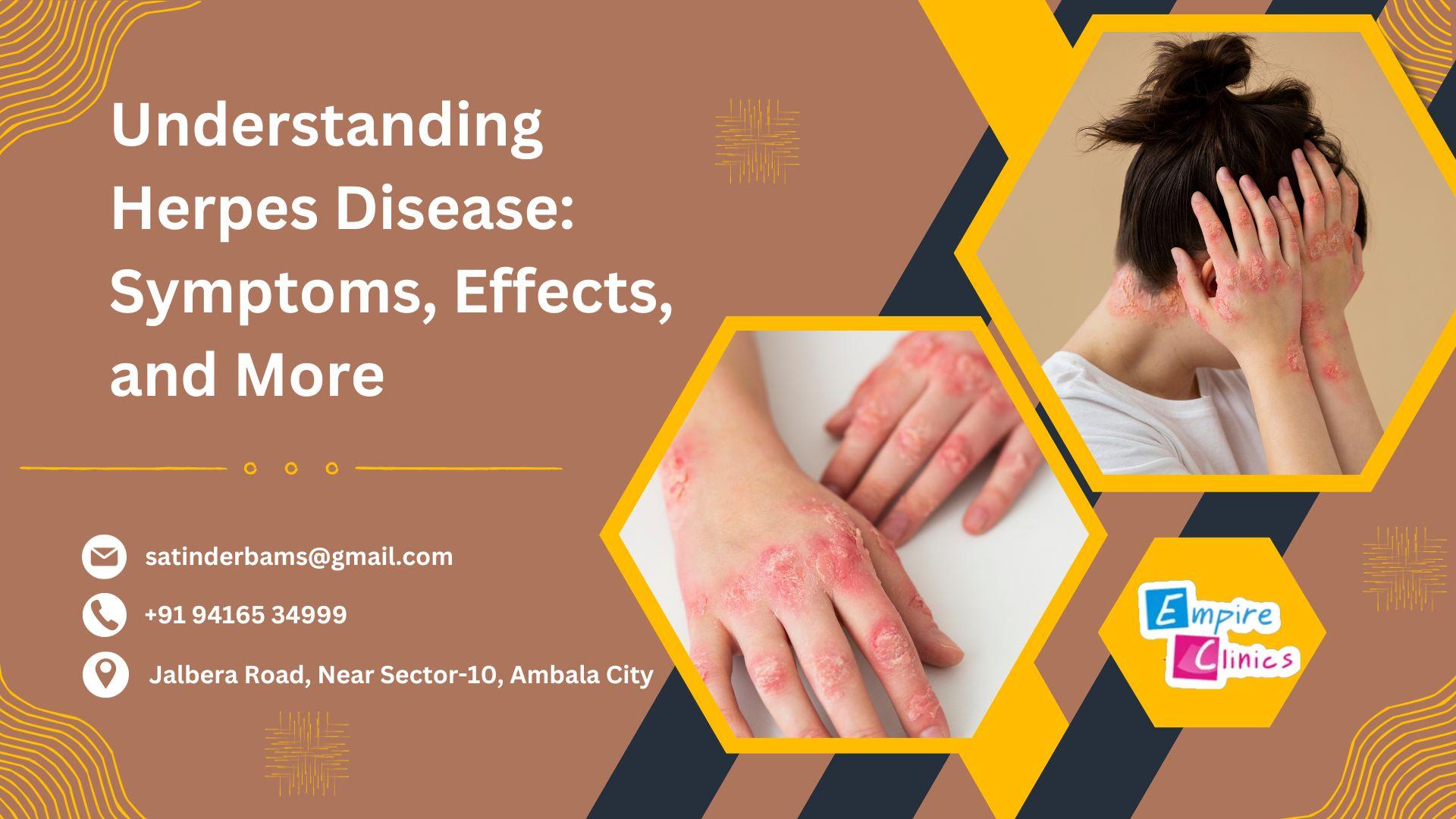Herpes is a common viral infection that affects many people. This article aims to explain what herpes disease is, its symptoms, and how it can affect your health. We will provide easy-to-understand information on this topic.
What is Herpes Disease?
Herpes disease is caused by the herpes simplex virus (HSV). There are two main types of herpes viruses: HSV-1 and HSV-2. HSV-1 is often responsible for oral herpes, while HSV-2 is linked to genital herpes. These viruses can cause various symptoms and affect individuals differently.
Symptoms of Herpes:
1. Oral Herpes (HSV-1): This type of herpes typically causes cold sores or fever blisters around the mouth. Before the sores appear, you might feel itching, burning, or tingling sensations.
2. Genital Herpes (HSV-2): Genital herpes can lead to painful sores or blisters in the genital and anal areas. Additionally, some people with genital herpes experience flu-like symptoms, including fever, swollen lymph nodes, and body aches.
3. Other Symptoms: In some cases, herpes can affect the eyes, causing redness, itching, and discharge (known as herpes keratitis). It can also lead to a rare but severe brain infection called herpes encephalitis.
How Herpes Affects People:
Herpes is considered a chronic condition because once you're infected, the virus remains in your body for life. It may become dormant and reactivate periodically, causing outbreaks of symptoms. The frequency and severity of these outbreaks can vary from person to person.
Herpes can also have emotional and social effects. Many individuals feel stigmatized or embarrassed due to the virus, which can affect their relationships and self-esteem. However, it's crucial to understand that herpes is quite common, and millions of people live healthy lives while managing the condition.
Prevention and Treatment:
While there is no cure for herpes, antiviral medications can help manage symptoms and reduce the frequency of outbreaks. Practicing safe sex, including using condoms, can lower the risk of transmitting herpes to sexual partners.
Conclusion:
Herpes disease, caused by the herpes simplex virus (HSV), is a widespread viral infection affecting numerous individuals worldwide. It can manifest in various symptoms, from cold sores to genital blisters, and can have emotional and social impacts on affected individuals. Although there is no cure, treatments are available to manage the condition and improve daily life.
It's important to remember that herpes is a common condition, and you are not alone if you have it. If you suspect you have herpes or have questions about the virus, consult a healthcare professional for guidance and support.







